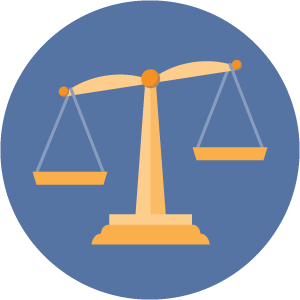Know your rights
- English
- Español
You have certain rights under the law or under the terms of your cardholder agreement. It’s important to know your rights and how to exercise them.

Do you know your rights?
- If an employer wants to pay your wages on a payroll card, do you have a choice?
- If your card is lost or stolen, can you get a refund for unauthorized charges?
- If the bank issuing your prepaid card goes out of business, what happens to your money?
You have the right:
To choose how you get paid
Your employer may offer to pay you on a prepaid card they choose, called a payroll card. Your employer can’t require you to receive your wages on a payroll card. The employer must also offer you at least one other way to get paid – for example, a paper check or direct deposit to an account of your choice, such as a bank account or your own prepaid card. Some states allow your employer to require that you be paid electronically, but you always have the right to choose the account where the money is sent.
Read more about your rights with a payroll card
To choose how you receive some government benefits
Depending on the kind of benefit you receive, you may have a choice of how you receive your government benefits. For some types of government benefits, you may have a choice between receiving the benefits on a government-arranged prepaid card or directly deposited into your bank account or your own prepaid card. Other types of government benefits might only be provided using a government-arranged card.
What is a government benefit card?
Read more about receiving benefits through a government benefit card
To fraud and error protection with prepaid cards
You have protections in case of an error or an unauthorized transaction if you have a prepaid card that you have successfully registered. For example, you generally can’t be held responsible for unauthorized charges or other errors on these cards, if you report them immediately. In addition, the card provider is generally required by federal law to credit the disputed amount to your account while investigating the problem if the investigation will take longer than 10 business days. You should write down the number on the back of your card and call it as soon as you notice your card is missing, or notice charges you don’t recognize.
Learn what to do if your card is lost or stolen, or you discover unauthorized charges
Depending on your card, you may have:
Insurance if the bank issuing your card goes out of business
For bank accounts, if your bank goes out of business, the government guarantees you will get all of the money in your individual bank account back, up to $250,000, through FDIC (Federal Deposit Insurance Corporation) insurance. Credit union accounts have similar insurance through the National Credit Union Administration (NCUA). Your prepaid card may also have FDIC or NCUA insurance; check your cardholder agreement to find out. The CFPB’s prepaid rule requires the prepaid card provider to disclose to you before you purchase or choose a card whether the money in the account is eligible for this insurance.
Learn how to find out if the money on your prepaid card is FDIC-insured
